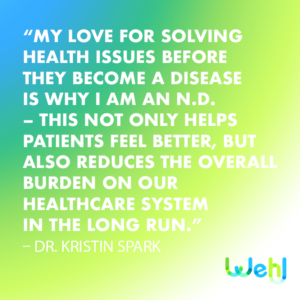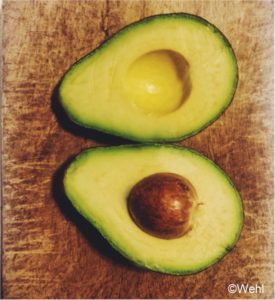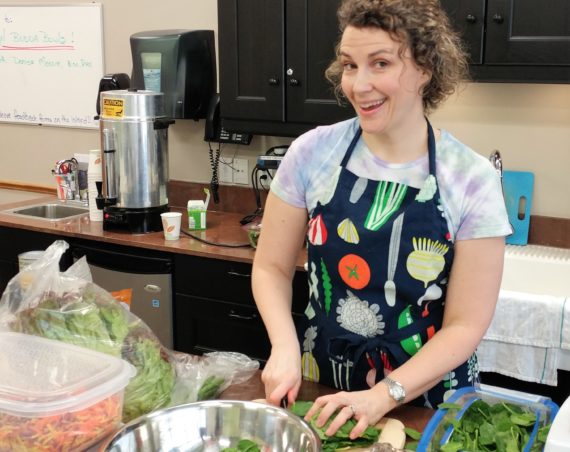Stress is a common word in our vocabulary these days and something many of us find ourselves feeling too much of, all too often. Understanding more about how stress affects us is an important step in learning how to take a balanced approach to minimizing and managing stress. To help us with this, we connected with Dr. Kristin Spark who is a Naturopathic Doctor and Sports Nutritionist focused on helping patients get to the root cause of illness. Kristin operates a family practice in the Kitchener-Waterloo area of Ontario and loves to help motivated people feel their best!
We asked Kristin to teach us about the impact stress has on us and both — what to do and what NOT to do — to help manage stress levels. Kristin also helps us understand more about what Naturopathic Medicine is and how it can help us. This doctor practices what she preaches and you’ll be inspired to adopt some of her personal strategies to prioritize wellness in your own life!
 WEHL: Please tell us a little about what a Naturopathic Doctor is and what inspired you to become one.
WEHL: Please tell us a little about what a Naturopathic Doctor is and what inspired you to become one.
KS: A Naturopathic Doctor (ND) is a trained medical health practitioner that must be licensed and board certified in order to safely practise naturopathic medicine. Naturopathic Medicine is a type of complementary and alternative medical care (CAM). NDs use natural therapies with the intention of reducing harm and guiding the body and mind back into a state of wellness homeostasis; we believe that the body has an inherent ability to maintain wellness when all the parameters for health are in place.
 WEHL: What’s your personal philosophy on wellness?
WEHL: What’s your personal philosophy on wellness?
KS: My personal philosophy on wellness has four themes:
- Everything in moderation – I often tell my patients to abide by the 80/20 rule. 80% of the time the food we eat, the activities we engage in, the way we live our life should be healthful and health promoting. 20% of the time life happens and we SHOULD enjoy the treats and pleasures of life. I like to enjoy my 20% by having a healthy glass of red wine on Fridays and enjoying a meal out with friends or maybe a little dessert. Life is meant to be enjoyed, and with moderation it can be!
- Pragmatism over perfection – Aiming for perfection often causes stress and anxiety about missed tasks, goals or failures. I find letting perfection go, and instead taking a pragmatic approach much more realistic and attainable for myself and my patients.
- Minimalism – This is a theme that I am incorporating more and more into my life. With clothing, household “things”, relationships, work tasks, etc. I find simplifying and taking a minimalistic approach means more time to do what I love doing, and more headspace to spend on bigger and bolder ideas.
- Prevention – I take a proactive, preventative approach to my healthcare – by staying on top of annual blood work, and using functional testing to provide health insights, to prevent and reduce illness and the burden on the body later. My love for solving health issues before they become a disease is WHY I am a Naturopathic Doctor – this not only helps patients feel better, but also reduces the overall burden on our healthcare system in the long run.
WEHL: How do you prioritize wellness in your life?
Personally, I prioritize wellness in my life by providing my body with the right foundation with healthy, wholesome eating patterns, and a lot of physical activity (daily). I prioritize high quality sleep and listen to my body when it tells me that it’s truly tired. I do use some supplements, but only minimally, when necessary. In addition to this foundation, I have a wellness team that I see for their valued objective opinion (Naturopath, RMTs, chiropractors, family physician).
WEHL: How can Naturopathic Medicine help us to improve our wellness?
KS: Naturopathic medicine uses a holistic and preventative approach to health. NDs are trained to assess vitamin and mineral status, stress, sleep, eating patterns, hormonal imbalance, mood and mental health, digestion, energy levels, etc. All of these systems provide a clinical picture about your health, and when there are barriers to feeling your best (such as poor sleep and fatigue), NDs use safe, natural, nature-derived therapies to assist patients back into balance.

WEHL: Fall is always a busy time and as we get back into our routines it’s easy to feel “stressed”. What is stress and how does it impact the various aspects of our wellness?
KS: Most people are familiar with the concept of stress, but maybe not the effects it can have on the body.
Eustress is a state of normal/beneficial stress that is thought to be beneficial. It causes motivational and behavioural changes to allow for avoidance of a perceived threat. For example, eustress would be the stress felt prior to an exam – this stress is motivational, it helps increase focus and directs behaviours towards a productive end (Recalling studied materials, and increased studying). Eustress is usually short term in nature and is beneficial.
Distress is destructive. It is associated with negative health consequences. It can be demotivating and can be thought of as unpleasant or painful. When distress is ongoing and chronic we see many problems arise.
Stress is perceived in the brain, which interprets information and sets off a neuro-hormonal cascade of events – cortisol and adrenaline are secreted (other neurohormones as well, although these are the key players).
WEHL: Sometimes we may not even fully realize that we’re stressed or it just begins to feel normal. How can we learn to recognize stress sooner before it becomes chronic and destructive to our health and wellness?
KS: Here are some examples of what to look out for:
- Sleep abnormalities (such as difficulties falling asleep, waking up throughout the night, waking up feeling unrefreshed)
- Overactive mind, especially at night
- Anxiety or feeling “keyed up”
- “Tired but wired”; getting a second wind of energy in the late evening
- Sugar, salt and carbohydrate cravings
- Abdominal weight gain and difficulties losing weight
- Abdominal discomfort with meals (such as bloating, gassy, food sensitivities, chronic diarrhea or constipation)
- Blood pressure changes
- Fatigue, low energy levels, malaise
- Skipped or late menstrual cycles for women
- Low libido
WEHL: We hear a lot about cortisol being involved with stress. What is cortisol and what is its relationship with stress?
KS: Cortisol is a chronic stress hormone. It is secreted from the adrenal gland cortex, in response to ACTH (Adrenocorticotropic hormone) stimulation from the pituitary gland. The adrenal cortex makes cortisol and the adrenal medulla secretes adrenaline. Chronic output of cortisol is colloquially called “Adrenal fatigue”.
WEHL: What are the adrenal glands and how are they involved with stress?
KS: Two small glands that sit on top of your kidneys. They are made up of two different types of tissue, and therefore have a hormonal function, but also a neurological-type function. They make cortisol and adrenaline from these tissues, respectively.
WEHL: What is the difference between stress and anxiety?
KS: Both are psychological phenomenon, with physical manifestations.
Stress is something that everyone experiences at some points in their lives. Stress can be productive, but it can also be negative and debilitating.
Anxiety is a general term for a debilitating psychological condition that presents with fears, panic attacks, specific phobias, and general malaise. Physical symptoms of anxiety are heart palpitations, chest pain, “sense of impending death/doom”, difficulty breathing, dizziness.
Anxiety and stress are definitely intertwined and people can absolutely be affected by both.
WEHL: What are some things we can do to help prevent and manage stress?
KS: Stress prevention and management techniques include:
- Mindfulness
- Meditation
- Physical exercise
- Yoga

- Mindful breathing exercise
- Cognitive behavioural therapy (CBT)
- Counselling
- Self care activities such as reading, hiking
- Good work-life balance
- Wholesome, healthy eating with lots of organic vegetables, some organic fruits, plenty of proteins (vegetarian and vegan sources are best, animal protein in moderation), and healthy carbohydrates and healthy fats such as avocados, olive oil, nuts and seeds
- Sleep! At least 8 hours of uninterrupted sleep
WEHL: What are some things we should avoid doing to help prevent and manage stress?
KS: Try to avoid:
- Over-exercising
- Alcohol consumption
- Sugar consumption
- Fad diets or cleanses
- Over extending oneself
- Ignoring personal boundaries
WEHL: How can seeing a Naturopathic Doctor help us prevent and manage stress or recover from a stressful time in our lives?
KS: Assessment of adrenal health using a salivary cortisol test is VERY useful. This helps to diagnose WHAT is happening with the adrenal glands, because the symptoms of over-production and under-production of cortisol (Adrenal resistance, or adrenal burnout) can be similar and unclear.
WEHL: What is typically involved in a Naturopathic visit?
KS: An initial consultation is generally an hour long and covers a LOT of information. We talk about your health goals, health history, family medical history, sleeping patterns, eating patterns, stress levels, mood, etc… Physical exams are also performed when indicated, as naturopathic doctors are trained to diagnose just the same as a family physician is. A treatment protocol is initiated in the first visit, as well as any diagnostic tools or assessments needed.
WEHL: Do you have any tips for someone who is interested in seeing a Naturopathic Doctor for the first time?
KS: Ask them for a 15 minute meet and greet, so that you can ask them about their approach, as well as get a feel for their practice style. It is important to ensure that you feel confident with how they will treat you, as each Naturopath has a slightly different approach to their care. Some use more homeopathy, some use more dietary counselling, some use a lot of supplements. You want to know what you’re looking for before you go in for your meet and greet.
 Connect with Dr. Kristin Spark:
Connect with Dr. Kristin Spark:
- Web: https://kristinspark.com
- Email: [email protected]
- Wehl Platform: @kristinspark
We invite you to join our all-in-one healthy lifestyle app at Wehl.com!
How do you prevent and manage stress? Share with us below!


